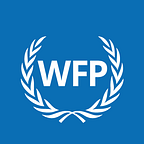Is evaluation the missing piece of the SDG jigsaw?
By Andrea Cook, Director of Evaluation at the UN World Food Programme, co-chair of EvalPartners
For a document of such magnitude, Resolution 70/01 adopted by the General Assembly on 25 September 2015, is, in UN terms, relatively short and to the point.
Transforming our world: the 2030 Agenda for Sustainable Development, also known as the Sustainable Development Goals a.k.a. the global goals, covers 17 goals, 169 targets and 230 indicators in just under 16,000 words.
Evaluation appears twice.
While that may appear to be small return for a practice that should be a fundamental part of any plan, its very inclusion is significant. It means that countries, who lead SDG implementation with support from the international community, have acknowledged its value.
While the international community searches for catalytic action, synergies across targets and the holy grail of transformational change, there exists deep within the original plan the seed of a ready-made solution with the potential to unlock the door to progress, and to get back on track on the road to 2030.
Evaluation is not the magic bullet. It does not economise the truth, or deal in fake news. Instead, it builds evidence, delivers hard, occasionally hard-to-swallow findings, offers learning from mistakes and champions successes. It rises above politics and emotional judgement to provide the scientific level of objectivity needed now more than ever.
These are values that have slowly but surely become adopted by world leaders in responding to the COVID-19 crisis. They now need to be fully embraced by international actors if the ambition of the 2030 Agenda for Sustainable Development is to be realized.
In recent years we have witnessed a growing appreciation of evaluation’s role in learning, as much as in accountability. Today, evaluation is increasingly recognized for offering countries evidence to track progress, course correct and steer a truer path to sustainable development.
The Decade of Action presents an ideal moment to bring evaluation more fully into the SDG picture. More than five years into the SDG era, it provides an opportunity for countries to be more firmly positioned in the driving seat supporting efforts to mainstream SDG targets into national planning initiatives.
Country-led evaluations of the SDGs will help to build bodies of evidence and construct strategic road maps to systematically track progress at national level. They will provide easier access to local real-time evidence to inform decision-making. Knowing what works, what doesn’t and why is crucial evidence that can feed into the Voluntary National Reviews (VNRs) that countries present in the High-level Political Forum to support the follow up and review of the SDGs.
Country-led evaluations are rapidly gaining currency. As the UN High-level Political Forum that took place from 9–15 July, two side-events were dedicated to showcasing experiences from a number of pioneering countries on their efforts to move towards evaluation of specific SDGs.
The events are entirely in keeping with the principles for evaluation marked in the 2030 Agenda. The first principle, “strengthening of national data systems and evaluation programmes”, follows the 2014 UNGA Resolution 69/237 Building Capacities for the Evaluation of Development Activities at Country Level, and has led to significant activity in developing national evaluation cultures.
The second: “[the SDGs’ follow up and review] will be rigorous and based on evidence, informed by country-led evaluations and data…”, was the subject of rich discussion at at the second HLPF side event on Country-led SDG Evaluation: the missing piece of the jigsaw? that took place on 9 July 2021.
With most SDG indicators now pointing in the wrong direction, it is time for the international community to afford the same level of attention to evaluation as has been given to monitoring in the 2030 Agenda. Country-led evaluations may be the missing piece of the SDG jigsaw that can help get us back on track.
